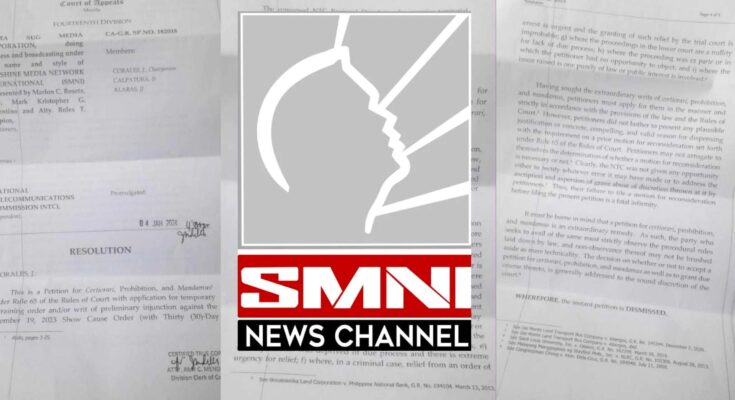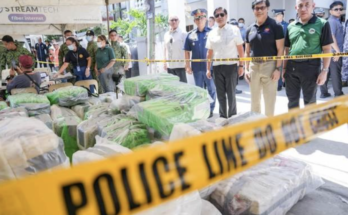THE Court of Appeals dismissed last week the petition of Sonshine Media Network International (SMNI) to stop the implementation of the 30-day suspension imposed by the National Telecommunications Commission against the media channel.
In a five-page resolution issued Thursday (Jan. 4, 2024), the court said SMNI operated by Suara Sug Media Corporation, has failed to follow the procedural rules in seeking a temporary restraining order, which the court has described as an extraordinary remedy.
“It must be borne in mind that a petition for certiorari, prohibition, and mandamus is an extraordinary remedy. As such, the party who seeks to avail of the same must strictly observe the procedural rules laid down by law and non-observance of these rules should not be brushed aside as mere technicality,” the resolution, a copy of which was obtained by Pinoy Publiko, said.
“The present petition warrants an outright dismissal for petitioners’ failure to comply with a requirement of a motion for reconsideration prior to the filing of a petition for certiorari, prohibition, and mandamus.
It bears stressing that before a petition for certiorari, prohibition, and mandamus can prosper, the petitioners must be able to show, among others, that they do not have any other “plain, speedy and adequate remedy in the ordinary course of law,” it ruled.
SMNI filed a petition for certiorari on Dec. 29, asking for a TRO following the Dec. 21 order of NTC suspending the operations of the media channel for 30 days.
The court said SMNI immediately sought the intervention of the court instead of seeking reconsideration from NTC.
“Petitioners may not arrogate to themselves the determination of whether a motion for reconsideration is necessary or not,” the court said.
“The petitioner did not bother to present any plausible justifications or concrete, compelling, and solid reason for dispensing with the requirement on a prior motion for reconsideration set forth under Rule 65 of the Rule of Court.”
With such a move, “the NTC was not given an opportunity either to rectify whatever error it may have made or to address at it by petitioners. Thus, their failure to file a motion for reconsideration before filing the present petition is a fatal infirmity,” it ruled.





